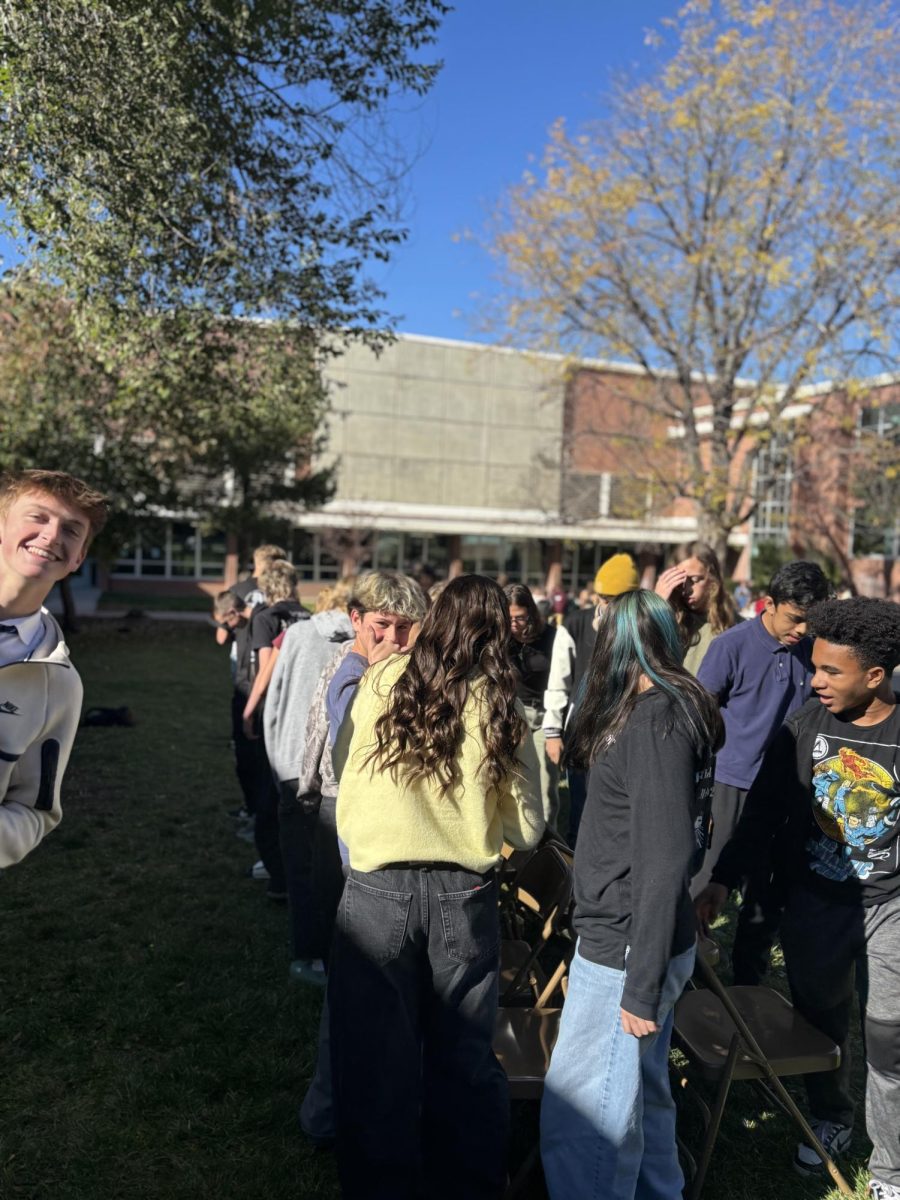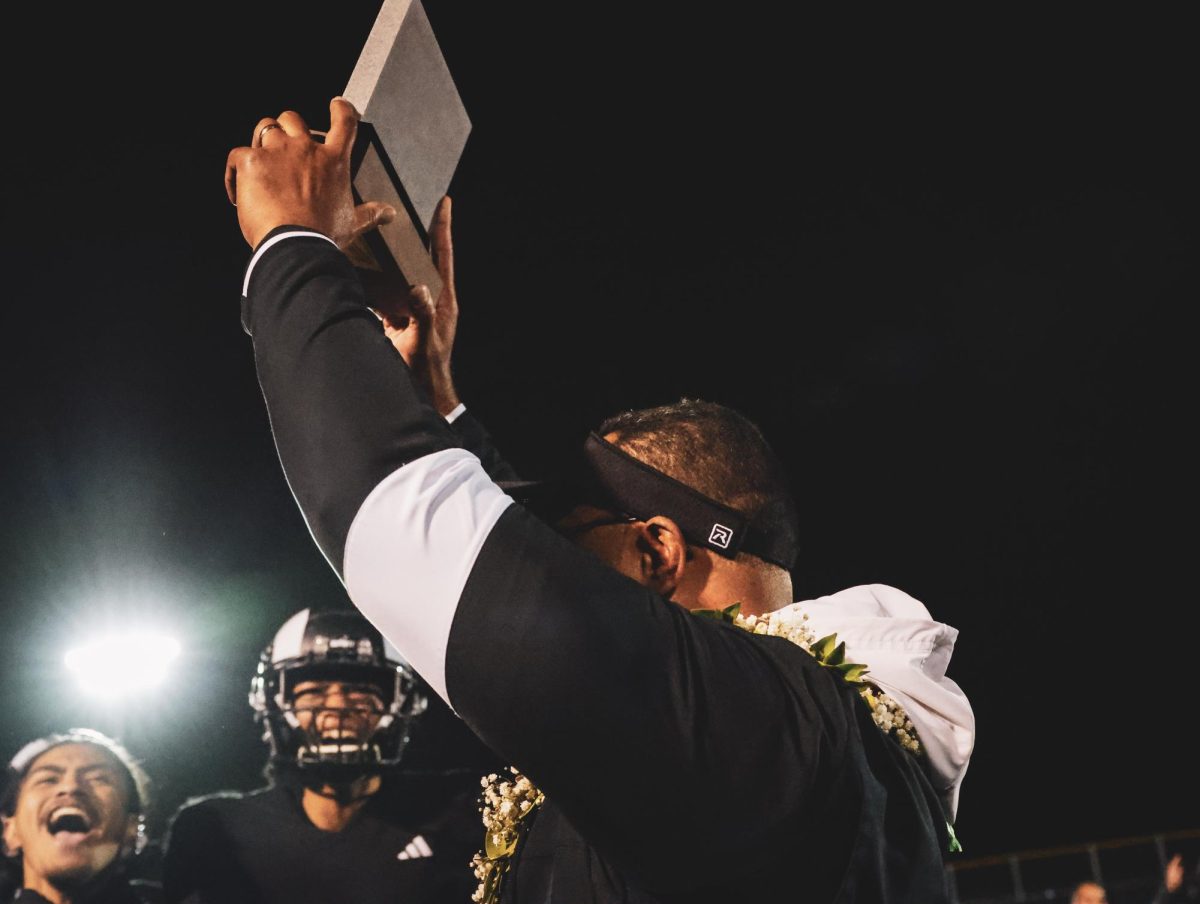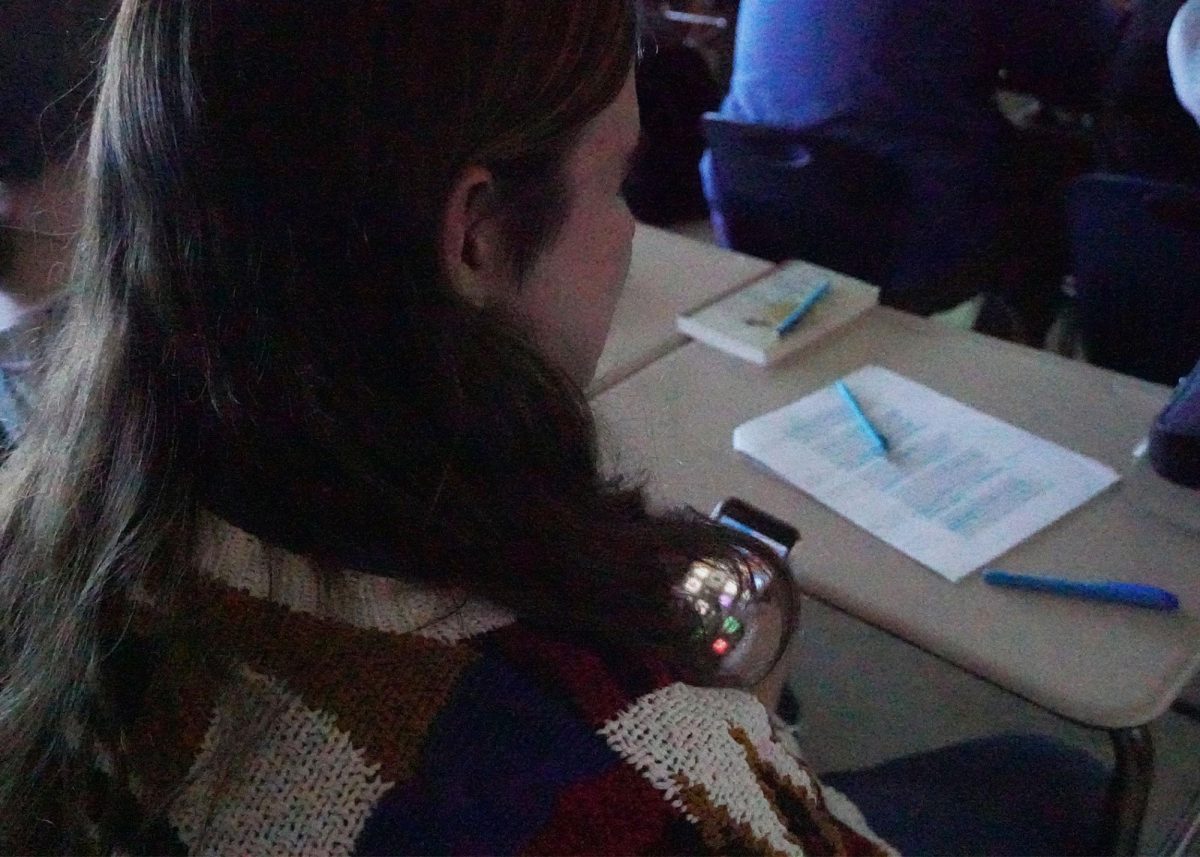On Feb. 5, Ogden High School put a new policy in place to ban cell phones in the classroom. This is a policy that many other schools and districts in Utah have considered, and Utah Governor Spencer Cox has also encouraged.
Studies show that students at schools that have banned cell phones have increased test scores compared to schools that still allow cell phones. Studies also show that if phones are out of sight, students are much less likely to think about them, which means more focus on the curriculum.
There are many opinions about whether a full ban on cell phones is fair and the best way to go about the problem. Many people believe that phones are useful in classrooms and can be utilized in a way that incorporates them into learning, while others have encouraged Highland principal Jeremy Chatterton to consider such a ban.
But Chatterton is not on board with a ban.
“I believe that phones are important to students and learning,” Chatterton said. “I think there are things we can do to be able to effectively use phones in school.”
While students are more engaged in learning when their cell phones aren’t in their hands, some drawbacks can come with not being able to look at phones at all. For example, some teachers use cell phones to submit photos of assignments – something that is more difficult to accomplish with the student laptops – or scan QR codes for quick assignments or surveys.
Chatterton does not believe a ban is necessary because teachers need the freedom to implement policies as needed in their classes.
“Teachers should have freedom with their rules and what they do with their classrooms,” Chatterton said. “They know what’s best.”
Ogden principal Shauna Haney said many of her students didn’t like the policy at first but are now adapting to it and understand why it is necessary and they are noticing a change in their behavior and grades.
“We have seen our active learning and engagement increase,” Haney said. “Parents and students have been supportive of the new policy as they’ve seen things change.” One concern that teachers have is that it would be hard to ban phones so that students wouldn’t go on them at all. Having to constantly watch students and make sure they aren’t sneakily going on their phones would be difficult for teachers, especially with bigger classes.
Stephanie Watrin, a math teacher at Highland, is in complete agreement with a full phone ban and hopes for it to happen at Highland.
“I see the students who are on their phones and the students who aren’t,” Watrin said. “It is very obviously shown through their grades.”
A subject like statistics builds off of previous lessons and students must know all the info from those units to understand the unit they’re in. This means that if a student goes on their phone for a whole unit, and then decides to pay attention for the next one, they still won’t understand what is happening.
Ogden still allows phones in the building. Students can go on them during passing periods and lunch breaks, but they must be put away when in class. Each classroom has a locker at Ogden where students put their phones but can still easily access them in case of emergency.
The opinions on the ban vary throughout the student body. Some students like it, some students don’t, and some students don’t like it but do believe that it would help with their success in the classroom.
“I think that it would be helpful to students,” senior Scout Hartvigsen said. “If I didn’t have a phone in my earlier years of high school, I think it would’ve done a lot better.”
The opinions on phone banning do seem to change at Highland depending on what grade the student is though. Many students who are a “yes” are older, juniors or seniors, and many of the students who are a “no” are younger. Only about 20 out of 145 voters voted that they liked it, but 44 students voted that they did not like it, but still understand it.
There is a liability concern. If a teacher takes a student’s phone and it breaks, is the teacher responsible?
“One hesitation I have is I don’t want teachers to feel responsible,” Chatterton said. “If it broke it may be labeled as their fault.”
Phones can be useful, but it is obvious to many that they have become an issue for students and things need to change, but it is hard to tell exactly what should happen.
The problem many teachers have is mindlessly scrolling to keep themselves entertained, but in turn, distracting them from the lesson.
“Ideally I would find a way to block off social media and games,” Chatterton said. “Then they could still use their phones for things they may need for school.”
For now, cellphones seem to be sticking around at Highland, but there may be a change to that in the near future.































